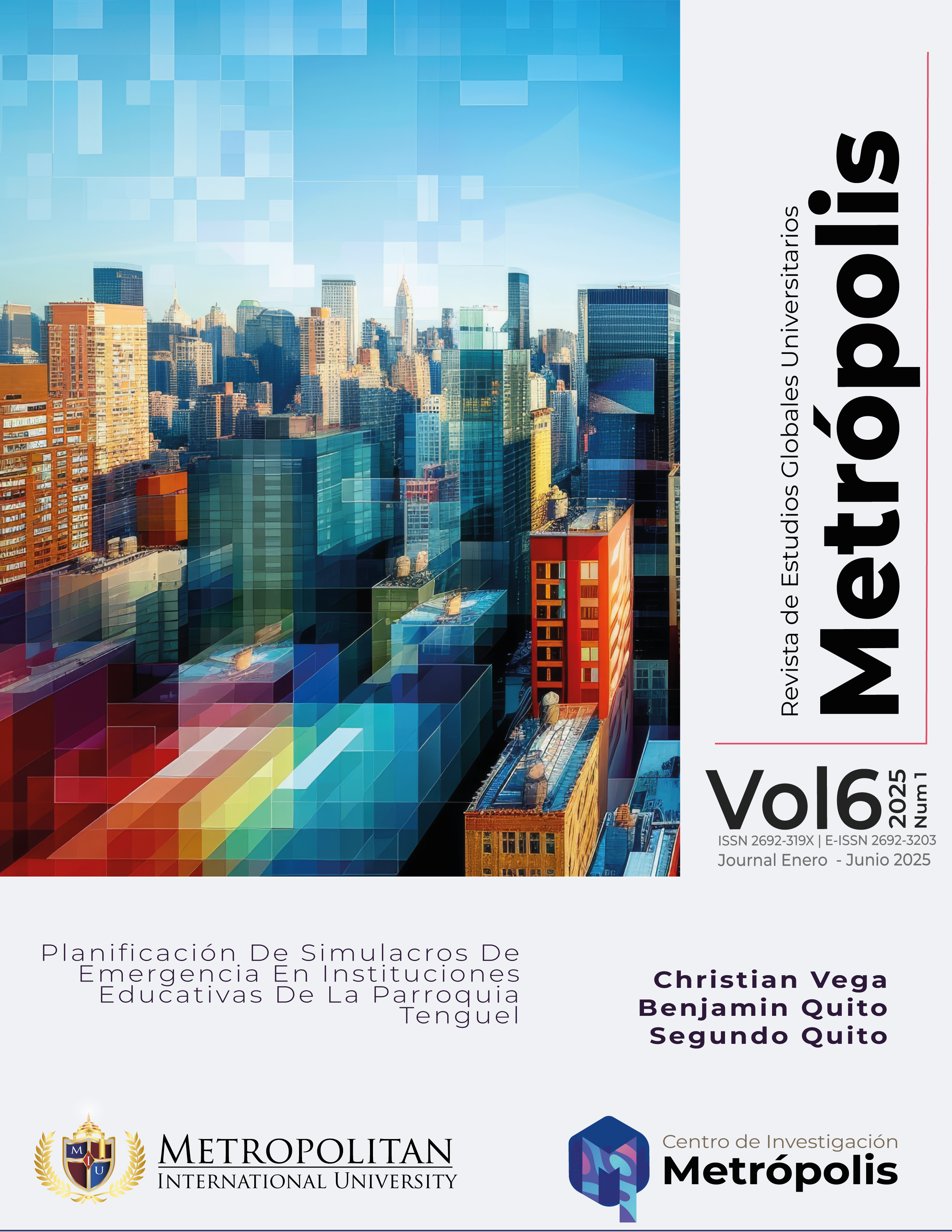Planning of Emergency Drills in Educational Institutions in the parish of Tenguel: Preparedness, Response and Recovery in Crisis Situations.
Keywords:
Drills, risks, educational institutions, disasters, securityAbstract
This project examines the planning of emergency drills in educational institutions in the parish of Tenguel, Ecuador, highlighting their role in preparedness, response, and recovery during crises. Tenguel faces risks such as earthquakes and floods. Although Ecuadorian regulations mandate drills, their implementation is often inadequate due to poor coordination with response agencies and insufficient staff training, which weakens preparedness. A bibliographic review and a mixed-methods approach were used, combining surveys with teachers, students, and administrators to assess their level of emergency preparedness. Additionally, interviews with authorities and risk management experts, along with direct observations of drills in various institutions, provided valuable insights into existing practices and areas for improvement. Findings showed that drills are often conducted in isolation, without proper coordination with emergency services such as firefighters or civil protection agencies. The lack of post-drill evaluations prevents continuous improvement and limits effectiveness. Key deficiencies include poor evacuation route signage, absence of protocols for students with disabilities, and inadequate training for both teaching and administrative staff. Additionally, low participation from the educational community reduces the impact of drills in fostering a culture of safety and prevention. Enhancing the planning and execution of drills is essential. This requires strengthening risk management training, improving coordination with emergency agencies, and integrating innovative technologies. Establishing monitoring and evaluation mechanisms will ensure drills are not just a bureaucratic formality but a key tool for strengthening school safety and resilience. Encouraging participation and a proactive risk management approach will help create a safer educational environment in Tenguel.

Downloads
Published
How to Cite
Issue
Section
License

This work is licensed under a Creative Commons Attribution-NonCommercial-ShareAlike 4.0 International License.



